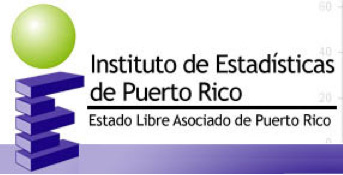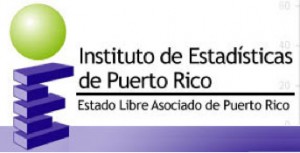Calls to keep Puerto Rico’s Institute of Statistics Independent grow louder

 The American Statistical Association (ASA), the world’s largest community of statisticians, together with leaders of the Puerto Rican scientific community and more than 1,800 petition signers are urging Puerto Rico’s legislature and Gov. Ricardo Rosselló to keep its statistical agency independent.
The American Statistical Association (ASA), the world’s largest community of statisticians, together with leaders of the Puerto Rican scientific community and more than 1,800 petition signers are urging Puerto Rico’s legislature and Gov. Ricardo Rosselló to keep its statistical agency independent.
The calls are part of growing opposition to a proposal that would eliminate the Puerto Rico Institute of Statistics (PRIS), the island’s only independent and dedicated source of statistics.
On Friday, a bipartisan group of 15 members of the U.S. Congress sent a letter to Nancy Potok, chief statistician at the Office of Management and Budget, with a copy to Bryan Moyer, director of the Bureau of Economic Analysis, and Rosselló, expressing their concern about the possible elimination of PRIS and underscoring their support for the agency’s independence. B
illboards also started to emerge over the weekend urging Puerto Rico statistics be kept transparent.
The proposal to dismantle PRIS is concerning because it eliminates the executive director position and independent board of directors and requires the Department of Economic Development and Commerce secretary to outsource all statistical functions currently performed by PRIS, ASA officials said.
“Currently, PRIS is an independent government agency of the executive branch with many protections in place to ensure its impartial collection, production and communication of statistical data,” ASA said.
The executive director position, for example — currently held by Mario Marazzi — is a 10-year appointment by the PRIS Board of Directors. The executive director has full control over PRIS operations to ensure the independence of its data.
The ASA and the petition signers called on Rosselló and the legislature to ensure PRIS operates independently of political influences and bureaucracy; that it has an autonomous and impartial board of directors — composed of private citizens — without connections to the current or previous administrations; and that the institute obtain the financing it needs to fulfill its functions.
“With its economic challenges and the devastation from Hurricane María, objective and trustworthy statistics are especially important to Puerto Rico,” said ASA President Lisa LaVange.
“PRIS data — now and in the future — shed light on a broad swath of the impacts of and recovery from both. They also help direct resources to where they will be most helpful. As a scientist, Governor Rosselló surely understands the importance of these data to evidence-based policymaking and data-driven decision-making,” LaVange said.
Experts believe many of the problems Puerto Rico is now facing — including an exacerbation of the government’s bankruptcy situation and poor surveillance of Hurricane María death toll, flu cases and Zika-related congenital defects — are partially due to inaccurate and dated statistical systems.
Although PRIS has been underfunded for years and must constantly deal with resistance from other local agencies to collaborate, its accomplishments have helped the Commonwealth in many ways.
For example, its work helped identify Medicaid fraud, saving taxpayers $10 million annually, and revealed a statistical bias in the formulas used to compensate doctors in Puerto Rico under Medicare that cost the local economy about $120 million annually.
The agency also played a crucial role in correcting the Consumer Price Index, which the government had been overestimating between 2001 and 2006, causing Puerto Ricans to unnecessarily pay more for everyday items such as gasoline.
The Puerto Rico House of Representatives could vote on the bill as early as today. Puerto Rico Senate President Thomas Rivera-Schatz has indicated his intention to discuss the bill this week, as well.
This is the second letter from the ASA to Rosselló regarding the PRIS. In the first one, sent on Jan. 9, LaVange expressed her disappointment that the PRIS had not been included in the working group that will review the number of deaths due to Hurricane María, although it has the expertise and knowledge about the mortality statistics program.
LaVange also expressed concern about the lack of funding and autonomy of the institute, saying the following:
“Government statistics play a powerful role in any democracy. They empower the economy, serve the health and welfare of its citizens, improve governance and inform decisions and policies in the public and private sectors, among many other vital functions,” she said.
“Government statistics are also fundamental to evidence-based policymaking, the engagement of which is on a rapid rise in local, state and federal governments. Government statistics are produced through rigorous scientific processes and analyses performed by experts that can function independently….Accurate, objective and timely statistics will help you and all Puerto Rico residents,” she added.













Es un deber de cualquier pais desarrollado el mantener reportando sus Estadisticas. Hacer lo contrario es una sublime manipulacion con el proposito de mantener a un pueblo incauto, en la oscuridad y sin conocimiento – lo cual les llevaria a ser ‘rehen’ de cualquier tirano. Preguntele a cualquier Economista.